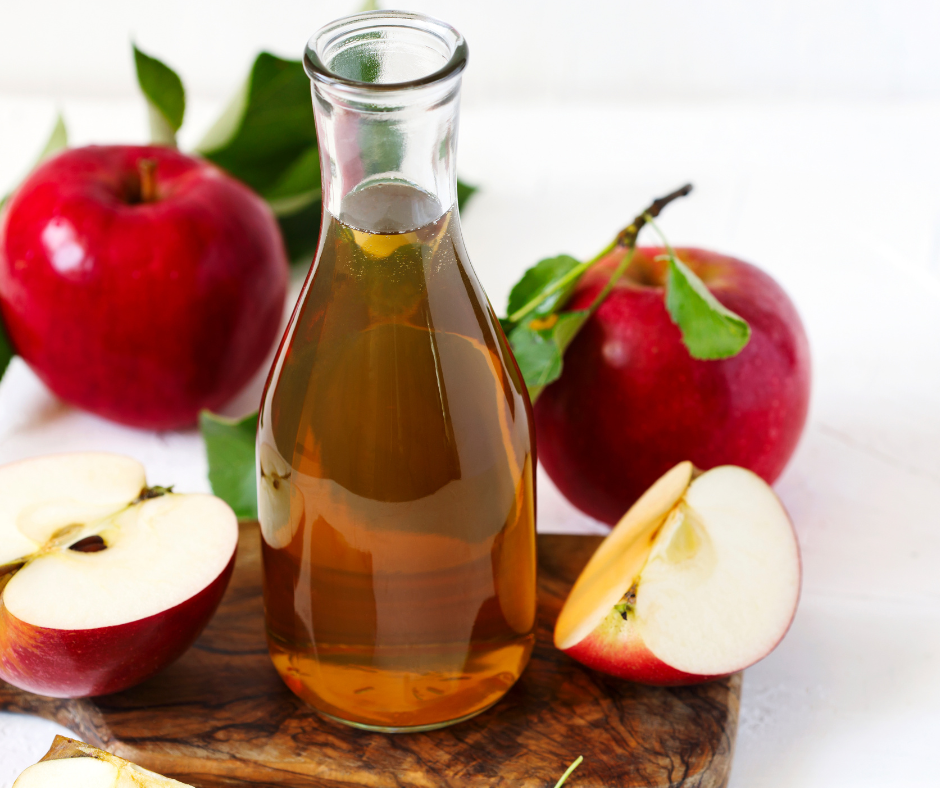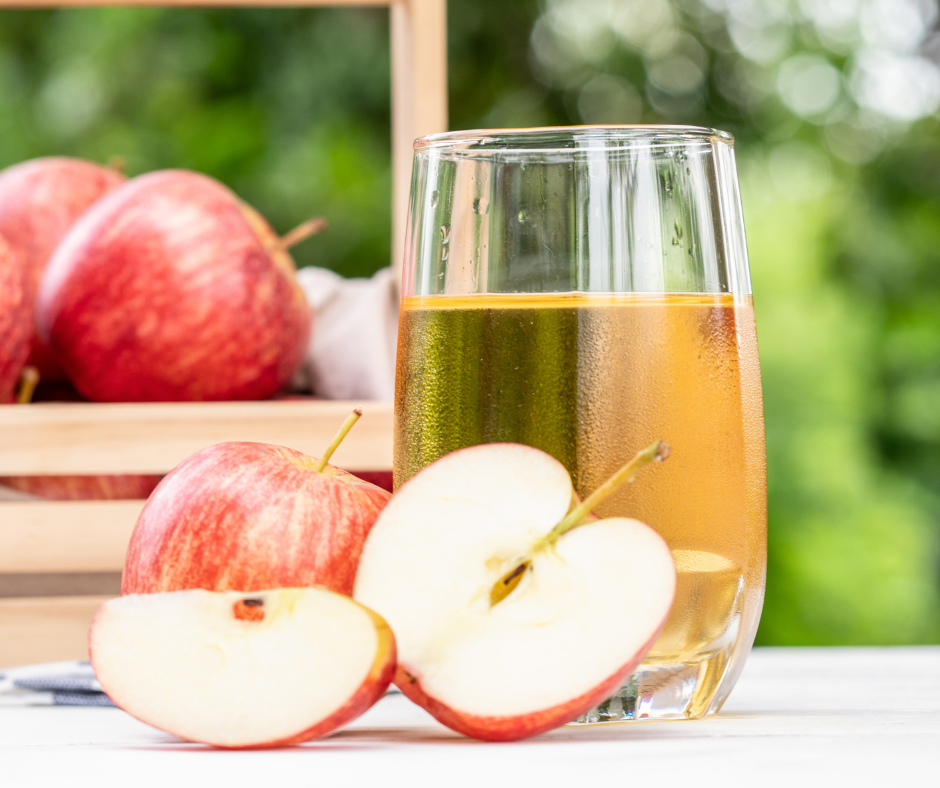Introduction
For those who enjoy cooking or DIY natural remedies, apple cider vinegar is a staple ingredient. However, there may be times when you run out of this versatile vinegar, or you’re looking for a sub for apple cider vinegar to add a different flavor profile to your dish. Luckily, several vinegar variations can serve as alternatives to apple cider vinegar.
Importance Of Vinegar In Recipes And The Need For Alternatives To Apple Cider Vinegar
Vinegar is crucial in various recipes, from condiments and dressings to pickling and preserving foods. It adds acidity, enhances flavors, and acts as a natural preservative. Apple cider vinegar, in particular, has gained popularity due to its unique taste and numerous health benefits.
However, there are situations when you may need to find a sub for apple cider vinegar. Perhaps you have a vinegar allergy or intolerance or don’t have it in your pantry. Whatever the reason, exploring alternatives can open up new flavor possibilities in your cooking.
Here are some vinegar variations that make great substitutes for apple cider vinegar:
- White distilled vinegar: This vinegar has a mild flavor and is made from distilled grain alcohol. It can be used as a substitute in salad dressings, marinades, and sauces.
- Red wine vinegar: Made from fermented red wine, this vinegar has a tangy and robust flavor. It works well in vinaigrettes, sauces, and marinades.
- Rice vinegar: Commonly used in Asian cuisine, rice vinegar has a mild and slightly sweet flavor. It is a great sub for apple cider vinegar in stir-fries, sushi rice, and pickled vegetables.
- Balsamic vinegar: This rich, dark vinegar is made from cooked grape must. It has a complex flavor that pairs well with salads, roasted vegetables, and sauces.
- White wine vinegar: Made from fermented white wine, this vinegar has a mild and slightly fruity flavor. It can be used as a substitute in salad dressings, marinades, and sauces.
Each vinegar variation brings a unique taste to dishes and can be substituted for apple cider vinegar depending on the desired flavor profile.
While exploring vinegar substitutes, it’s important to remember that flavors may vary slightly, so it’s best to experiment and adjust amounts to achieve the desired taste. Additionally, consider the acidity level of the substitute vinegar and adjust accordingly to maintain the balance in your recipes.
In conclusion, having alternatives to apple cider vinegar allows you to experiment with different flavors and cater to dietary restrictions or preferences. Whether you choose white distilled vinegar, red wine vinegar, rice vinegar, balsamic vinegar, or white wine vinegar, each can offer a unique twist to your recipes and add depth to your culinary creations.

Understanding The Taste And Role Of Apple Cider Vinegar
Apple cider vinegar is a popular ingredient known for its tangy flavor and numerous health benefits. It is commonly used in cooking, baking, and household cleaning. However, there may be instances when you don’t have apple cider vinegar on hand or are looking for a different flavor profile. In such cases, knowing some suitable alternatives to apple cider vinegar is helpful.
Characteristics Of Apple Cider Vinegar And Its Impact On Recipes
Apple cider vinegar has a distinct fruity and acidic taste. This flavor is often called for in recipes to add a tangy or sour note. It is commonly used in salad dressings, marinades, and pickling recipes. Apart from its flavor, apple cider vinegar also has a slightly cloudy appearance due to the presence of “mother,” a combination of beneficial bacteria and yeast.
When substituting apple cider vinegar in recipes, it is essential to consider its acidity level. Apple cider vinegar has a pH of around 3.1-5.0, making it moderately acidic. This acidity helps balance flavors and can contribute to the dish’s overall taste. Therefore, when searching for alternatives, finding substitutes with a similar acidity level is crucial to maintaining the desired balance in your recipes.
The Role Of Acidity In Dishes And The Importance Of Finding Suitable Substitutes
The acidity in apple cider vinegar serves multiple purposes in recipes. It can be a natural preservative, enhance flavors, and help tenderize meat. The acidic nature of apple cider vinegar can also react with baking soda to create carbon dioxide, which aids in leavening baked goods.
Finding suitable substitutes for apple cider vinegar depends on the recipe and the desired flavor profile. Some alternatives include:
- White wine vinegar: Similar to apple cider vinegar, white wine vinegar provides a tangy flavor suitable for dressings and marinades.
- Red wine vinegar: This vinegar has a slightly more robust flavor than apple cider vinegar. It works well in recipes that require a bolder taste.
- Balsamic vinegar: Its sweet and complex flavor can add depth and richness to dishes. It is commonly used in salad dressings and glazes.
- Lemon juice: The tartness of lemon juice can be a good sub for apple cider vinegar in recipes that require acidity. It works well in marinades, sauces, and vinaigrettes.
Remember to adjust the quantity of the substitute based on the desired taste and acidity level of the recipe. Experimenting with different substitutes can help you discover new flavor combinations and tailor your dishes to your liking.

Specific Sub for Apple Cider Vinegar
Substitute 1: Apple Juice And Lemon Juice
If you are looking for a substitute that maintains the tangy flavor of apple cider vinegar, a mixture of apple juice and lemon juice might be the perfect solution. Combine equal parts of apple juice and lemon juice to create a flavor profile similar to apple cider vinegar. This substitute works well in recipes that call for a fruity and acidic component, such as salad dressings or marinades.
Substitute 2: Lemon Or Lime Juice
For a more citrusy option, lemon or lime juice can be used as a substitute for apple cider vinegar. These citrus juices provide a tangy and acidic flavor that can enhance the taste of your dishes. Lemon juice is especially versatile, as it pairs well with sweet and savory recipes. Lime juice, on the other hand, can add a unique and refreshing twist to your dishes. Both lemon and lime juice are alternatives to apple cider vinegar in salad dressings, sauces, and marinades.
Comparison Of Taste And Suitability For Different Recipes
When it comes to taste and suitability for different recipes, it’s important to consider the specific flavor profile you are looking for. Apple juice and lemon juice provide a similar tangy taste to apple cider vinegar, making them ideal substitutes in recipes that call for a fruity and acidic component. These substitutes work well in salad dressings, marinades, and other dishes where the tartness of apple cider vinegar is desired.
On the other hand, lemon and lime juice offer a citrusy flavor that can add a refreshing twist to your recipes. Lemon juice pairs well with sweet and savory dishes, making it a versatile sub for apple cider vinegar. Lime juice, with its unique tangy taste, is a great alternative in recipes that could benefit from a more tropical and zesty flavor.
In summary, apple juice and lemon juice can offer a similar tangy flavor when looking for substitutes for apple cider vinegar. In contrast, lemon or lime juice can provide a citrusy twist. Consider the specific taste you want and the recipe you are preparing when choosing a substitute. Experimentation with different flavors can lead to exciting and delicious results in your culinary creations.

Recipes And Dishes That Use Apple Cider Vinegar And Their Alternatives
Salad Dressings And Their Vinegar Variations
If you love making salads, you’re probably familiar with the tangy taste of apple cider vinegar in salad dressings. But what if you run out of this pantry staple? Don’t worry – you can use several vinegar alternatives to achieve that same delicious flavor.
- White Wine Vinegar: This vinegar offers a mild and slightly fruity flavor, making it a great sub for apple cider vinegar in dressings. It works well in vinaigrettes and can be used in the same proportions as apple cider vinegar.
- Red Wine Vinegar: This vinegar has a bolder flavor profile and adds a rich, tangy taste to dressings. Use it as a substitute for apple cider vinegar in equal amounts to maintain the balance of flavors.
- Rice Vinegar: If you prefer a milder and slightly sweet taste, rice vinegar is an excellent alternative. It works well in Asian-inspired dressings and can be used in the same quantities as apple cider vinegar.
Using Citrus Substitutes In Marinades And Sauces
Regarding marinades and sauces, apple cider vinegar provides acidity and a hint of fruity sweetness. But fear not if you have none on hand – citrus juices can offer a similar tangy flavor. Here are a few alternatives:
- Lemon Juice: Lemon juice is a versatile substitute for apple cider vinegar. Its bright acidity can elevate marinades and sauces, especially those for seafood or chicken dishes.
- Lime Juice: Lime juice adds a unique citrusy taste and is a great substitute for apple cider vinegar in Mexican or Caribbean-inspired dishes. It pairs particularly well with grilled meats and fish.
- Orange Juice: For a touch of sweetness, orange juice can be used as an alternative to apple cider vinegar. It works best in marinades for pork or as a glaze for roasted vegetables.
Remember, when substituting apple cider vinegar with citrus juices, use the same amount called for in the recipe and adjust to taste if needed.
Using these alternatives ensures you can still enjoy your favorite recipes even when apple cider vinegar is out of stock. Experiment with different options to find the flavors that suit your palate best.
Adjusting To Taste And Dietary Preferences
Adapting Substitute Choices Based On Personal Preferences And Dietary Restrictions
For those looking for alternatives to apple cider vinegar due to taste preferences or dietary restrictions, there are several options to consider. Whether you are following a specific diet, such as the keto or paleo diet, or want to try something different, these substitutes can provide the acidity and flavor you desire. Here are some vinegar variations to explore:
1. White vinegar: White vinegar is one of the most readily available substitutes for apple cider vinegar. It has a similar level of acidity and can be used in various recipes as a 1:1 replacement. However, it has a more pronounced and sharper flavor, so adjusting the amounts to taste is important.
2. Red wine vinegar: If you prefer a slightly milder taste, red wine vinegar can be a great substitute. It adds a subtle fruity flavor and has a lower acidity than apple cider vinegar. Use it in dressings, marinades, or sauces for a touch of tanginess.
3. Rice vinegar: For those who enjoy Asian-inspired cuisine, rice vinegar is an excellent substitute. It has a mild and slightly sweet flavor, making it ideal for sushi rice, stir-fries, and pickling. Remember that it lacks the same tanginess as apple cider vinegar, so you may need to adjust the amounts accordingly.
4. Balsamic vinegar: Balsamic vinegar is a fantastic choice if you are looking for a more robust and deeper flavor. It adds a rich and slightly sweet taste to dishes and pairs well with roasted vegetables, grilled meats, and desserts. However, due to its intense flavor, it may not be suitable for all recipes.
5. Lemon juice: If you don’t have any vinegar available or prefer a citrusy taste, lemon juice can be a viable substitute. It provides a bright and fresh flavor and works well in salad dressings, seafood dishes, and baked goods. Remember that lemon juice has a different acidity level than vinegar, so adjust the amounts accordingly.
Remember, when substituting apple cider vinegar with these alternatives, it’s essential to adjust the amounts based on personal taste preferences and the specific recipe. Experimentation may be needed to find the perfect balance.
FAQs About Using Vinegar Substitutes And Their Applicability In Different Recipes
Q: Can I use white vinegar as a substitute for apple cider vinegar?
A: White vinegar can be a suitable substitute in recipes where the flavor profile of apple cider vinegar is not critical. However, it is important to note that white vinegar has a stronger, sharper taste, so adjust the quantity accordingly.
Q: Can I use balsamic vinegar as a sub for apple cider vinegar?
A: While balsamic vinegar can work as a substitute, remember that it has a distinct sweet and tangy flavor. It may alter the taste of the final dish, so consider using it in recipes where the flavor combination complements the other ingredients.
Q: Are there any non-vinegar alternatives for apple cider vinegar?
A: If you prefer a vinegar-free option, try using lemon or lime juice to provide the necessary acidity. However, remember that these citrus juices may add a slightly different flavor.
Q: How can I determine the appropriate amount of substitute vinegar?
A: The general rule of thumb is to use an equal amount of substitute vinegar as the original measurement. However, it is always best to start with a smaller amount and adjust to taste, as each substitute vinegar may vary in intensity.
Q: Can I use vinegar substitutes in salad dressings and marinades?
A: Absolutely! Vinegar substitutes can be used in salad dressings and marinades if the flavor profile complements the other ingredients. Experimenting with different combinations can lead to delicious results.
Conclusion
Now you know what can be a sub for apple cider vinegar. In the world of cooking, finding substitutes for key ingredients is common. With its unique flavor and acidity, Apple cider vinegar is no exception. Fortunately, several vinegar alternatives can be used in recipes without compromising the overall taste and quality of the dish.
Remember, when substituting apple cider vinegar with a different vinegar or acid, it is essential to consider the alternative’s flavor profile and acidity level. The goal is to maintain the integrity and balance of the dish while exploring new taste possibilities. So, don’t be afraid to get creative and have fun in the kitchen!

Andre Lotz immigrated to the United States from South Africa almost 20 years ago. Still, he didn’t feel truly at home until he settled in Mobile—a city that reminds him of his childhood home of Fish Hoek on the southern cape of Africa.

